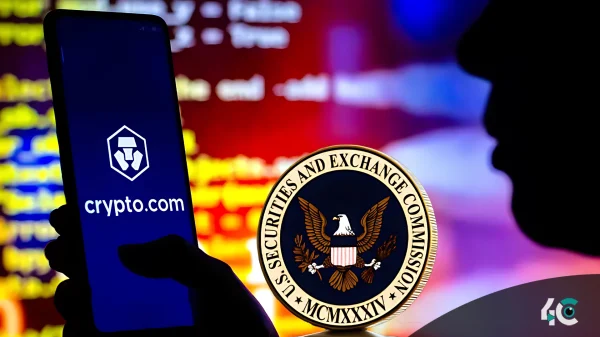The rise of cryptocurrency donations to extremist groups is sparking concerns among regulators and law enforcement. As decentralized assets provide anonymity, tensions grow over how to prevent illicit funding while preserving financial privacy in the crypto ecosystem.
The low-key crypto donations to extremist groups reflect the ongoing struggle between financial freedom and security.
The unique features of cryptocurrency, such as decentralization and anonymity, make the cryptocurrency revolution a complex phenomenon. In the past few years, extremist organizations have relied heavily on crypto donations to fund their operations. This trend has sparked a heated debate on how to ensure financial freedom without compromising on security against threats.
Who Is Involved, and What’s Happening?
According to a cybersecurity firm and other government reports, extremist groups, from terrorists to far-right militias, are using cryptocurrency to avoid banking restrictions. By taking on Bitcoin and Ethereum and other digital assets, these outfits can have money in no time, at any place, and without risk of being traced.
In 2022, a crypto investigation revealed that a banned neo-Nazi group raised over $100,000 to fund propaganda and illegal operations. Likewise, foreign terrorist groups have turned to crypto wallets to seek donations, typically misrepresenting them as charity appeals.
Even though blockchain technology makes records of transactions permanent, tracing the funds back to individuals or companies is still a challenge.
Why Does This Matter Now?
The growing popularity of cryptocurrency donations to extremist organizations has occurred alongside broader cryptocurrency adoption. As more people use crypto, the bad people using it will cause major trouble for global security. These include funding for violent attacks and undermining efforts aimed at counteracting money laundering and terrorist financing.
Pressure is mounting on governments and regulatory bodies to respond. For example, the U.S. The Treasury Department has recently placed sanctions on several crypto addresses that are related to funding for extremists. But those against it argue that the steps target the symptoms, not the cause of the issue.
At the same time, defenders of financial freedom warn against overreach. They warn that excessive restrictions could hamper innovation and violate the rights of good citizens who use crypto for legal purposes. According to some experts, sacrificing privacy and autonomy in the name of security would be a mistake.
How Did We Get Here?
The issue stems from the special characteristics of cryptocurrency itself. Cryptocurrency works on decentralized networks, unlike banks, where traditional financial systems operate with centralized intermediaries. This kind of construction ensures greater affordability and manageability for users but also offers chances for abuse.
Extremist groups were quick to recognize these advantages. As early as 2016, there were reports of ISIS using Bitcoin to fund recruitment and operations. To put it another way, anytime I hear someone make a statement like that, I always assume certain things.
At the same time, regulation in the crypto space has struggled. Some nations have brought stringent AML and KYC rules into effect, while others are fairly behind. This creates loopholes that are exploited by bad actors.
The Ethical Dilemma.
How do we preserve individual liberties and protect the security of the community at the same time? Supporters of financial liberty believe that it is unreasonable to punish all crypto users for the actions of a few. They stress that blockchain may be the most effective way of improving the economy, transparency, and the poor.
In contrast, security experts say that we need to stop such things proactively from happening. Dr. Sarah Lin, a counterterrorism expert, states that anonymity should not equate to impunity. “Unless we intercept these flaws, crimes will take place using anonymous digital assets.”
Conclusion:
Finding common ground will take the effort of governments, tech companies, and civil society. Ways to make it better include improving AML/KYC rules, investing in blockchain analytics tools, and boosting global cooperation.
However, striking the right balance won’t be easy. Making too many rules could scare away good users and stop new ideas, but having too few could help bad people.
As the discussion continues, it is clear that the coming together of crypto and extremism highlights the larger problems of bringing innovative technologies into the fold of existing societal systems. Responsible navigation of this complex landscape can enhance the future of our financial systems and global security.














































